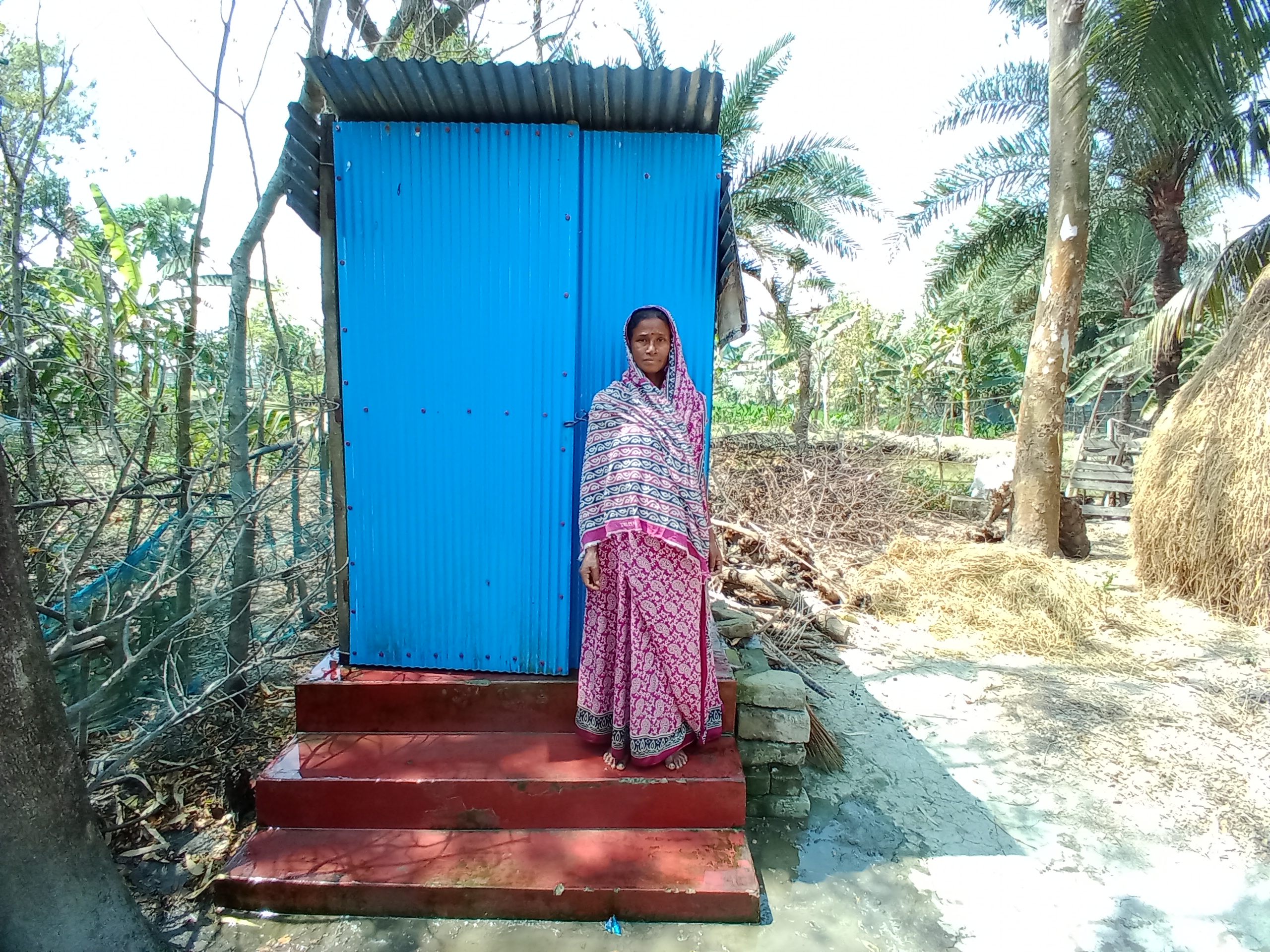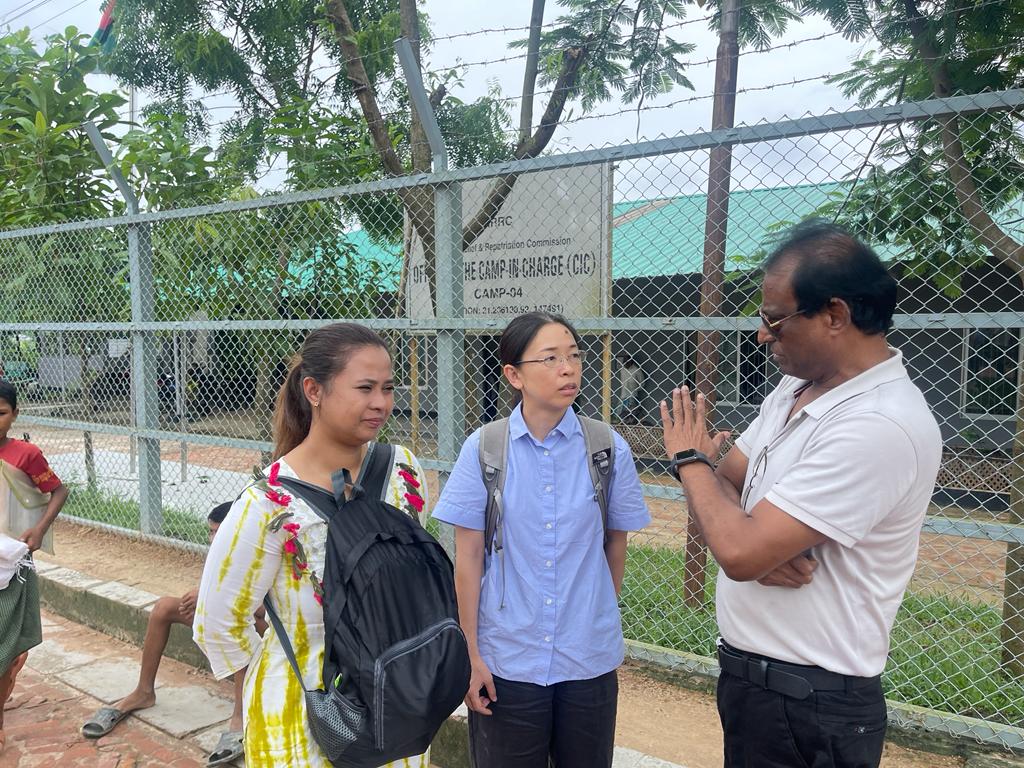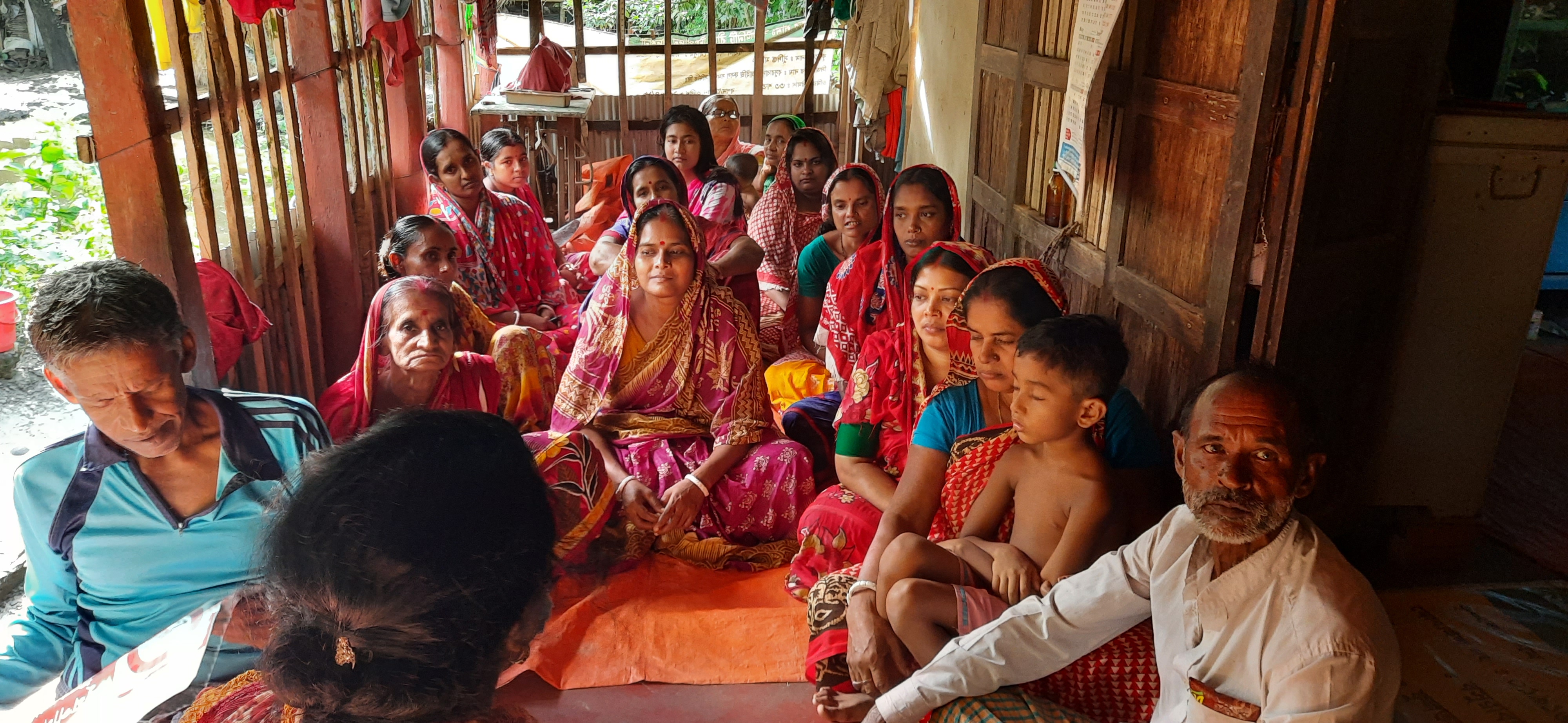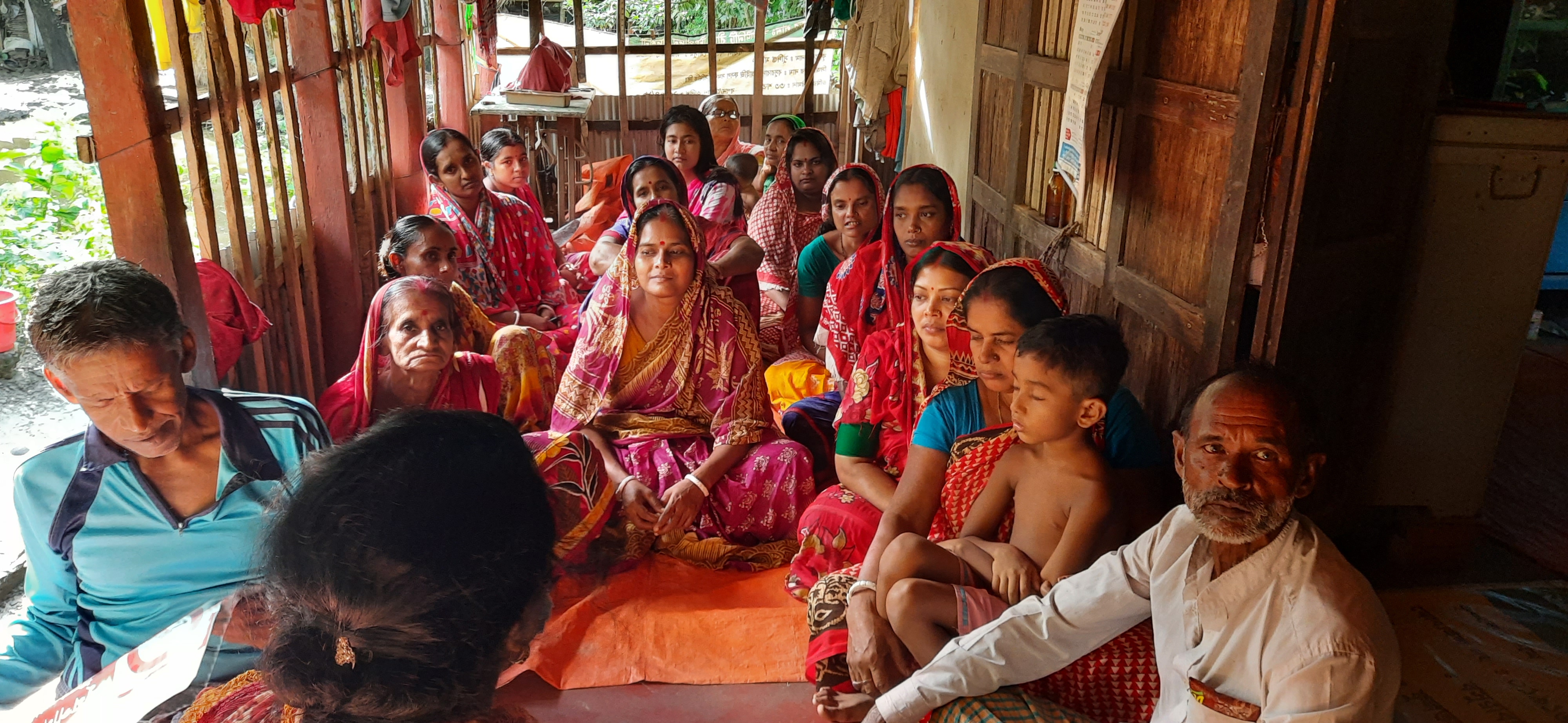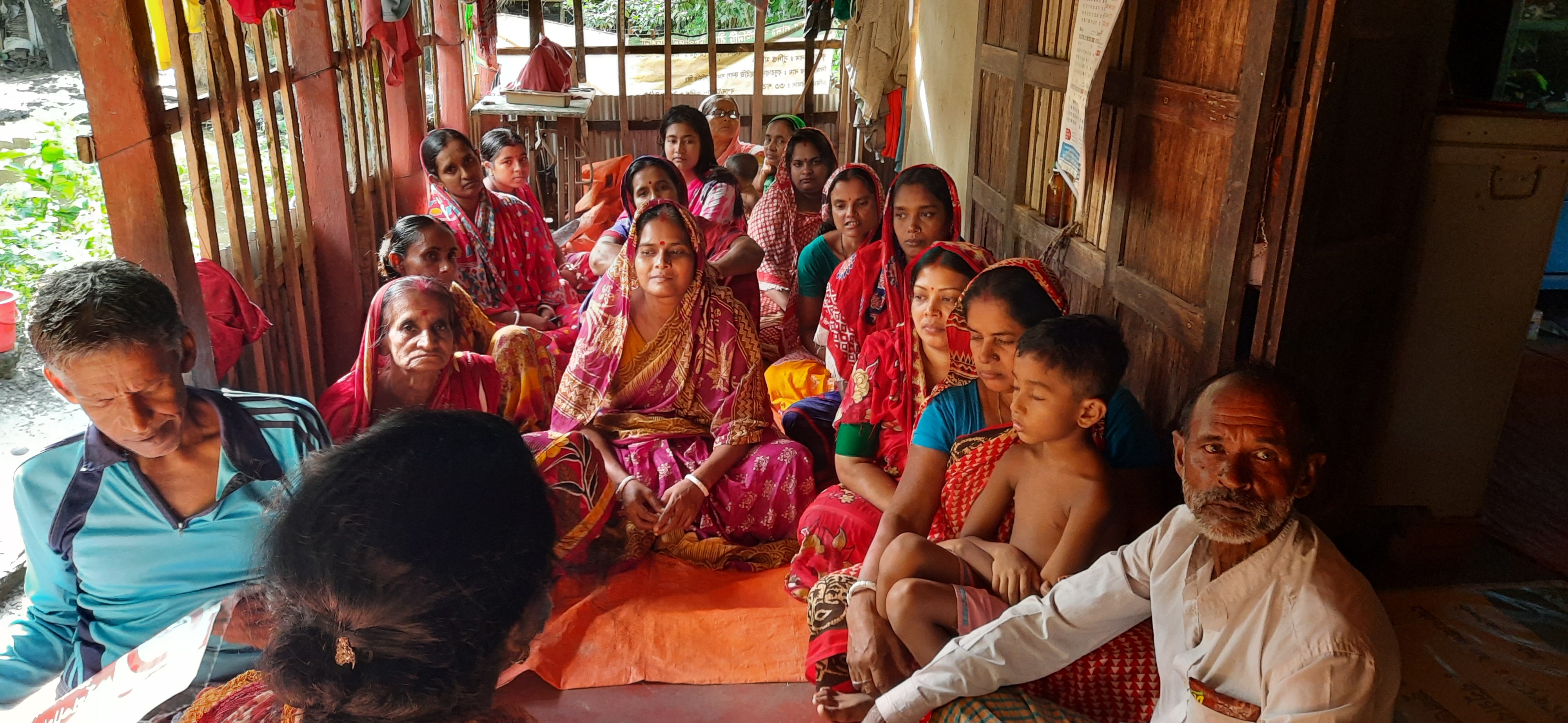
Nice foundation at a glance
Nice Foundation is a rights-based NGO working in south-west Bangladesh to improve economic sustainability and reduce inequalities and social disadvantage. It focuses on women, children and disadvantaged minority groups, especially the very marginalised Kawra (pig rearer) community. It follows a participatory model with the active involvement of its beneficiaries in its research, management and decision-making. Nice Foundation focuses on one of the most disadvantaged communities of the world, the Kawra community of ‘untouchable’ pig-rearing Hindus in the Jessore and Khulna districts of south-west Bangladesh. It was set up in 2005, following a major research project undertaken by the research agency, Research Initiatives Bangladesh1. There are five minority pig-eating communities in the area. Some 80% of households are landless; only 5% are literate and around 60% have an average monthly income below 1,000 taka (around US$16). The communities are deprived of fair justice and social status. Few children have any formal education. Many basic rights are non-existent, including water sanitation and space for animal husbandry. Some take up pig-rearing as a profession, as pork has a large market among Hindus, Christians, foreigners and, in Dhaka, international hotels. However, pig-rearing is not accepted by the majority Muslim community. Pig rearers therefore have to hide their pigs and rear them out of the sight of the general public. Moreover, many pigs die of unknown diseases, as the Government does not have treatment facilities. No pathological testing facilities are available in the region and local government livestock officers neglect Kawra communities. No permitted and recognized shops sell pig meat. Class and status gaps create discrimination, resulting in a loss of self-confidence. Majority communities possess Kawra lands illegally and control their resources. They have no opportunity to participate even in the lowest local government structure. They are not accepted on managing committees of schools, markets and in other social institutions. They are not allowed to participate in any decision-making processes in the region. It is women who bear the brunt of this disadvantage. The UNDP Gender-related Development Index (GDI) ranks Bangladesh at 123rd position out of 174 countries. The poor ranking is the result of the women’s low literacy rates and low share of earned income. In 1997, female literacy rate was half that of men. Women’s real GDP per capita was less than 60 per cent that of men. Women are often at a disadvantaged position in both social and economic terms. Following the ‘Research Initiatives Bangladesh’ research, the Nice Foundation was formed in 2005 by a group of women guided by Mr Mujibur Rahman, Ms Dorieke Goodijk of Wageningen University Holland, and members of the Kawra community who identified the help they needed and supported the establishment of the Nice Foundation. The Foundation worked on a largely voluntary basis for four years, working with a network of NGOs in the area, earning consultancy fees from NGOs and liaising the Government’s NGO Affairs Bureau. In 2009, it received its first major international funding – a two-year grant from the Global Fund for Women (USA) to develop is work with Kawra women. It also achieved formal recognition from NGO Affairs Bureau, which in Bangladesh is a prerequisite for receiving international aid. It is now broadening out its remit, using its skills and resources to meet wider community needs.
Focus: The organization focuses on Minority, women & children and as a whole Human rights, Participatory Action Research, Climate Change, Education and Health. It does not work on revolving credit.
Specific Objectives of the Organization:
- To undertake activities for human rights and good governance, legal support to women and children and gender equality
- To undertake emergency relief and rehabilitation activities in natural disaster
- To undertake and promote research activities on various aspects of social development
- To establish or support training centers of conduct and arrange training programs, grant stipends, scholarships, sponsor or organize seminars, workshops, conferences and periodicals
- To help poor people for improving access to resources and providing institutional and other facilities to the physically vulnerable and distressed people.
- To undertake and carry on welfare and development activities for poor in fundamental rights (health, education, shelter etc.).
- To undertake activities on integrated agriculture development, fisheries and livestock activities on integrated agriculture development, fisheries and livestock development.
- To undertake activities for establishing education schools for children and adults.
- To undertake socio-economic activities for reduction of poverty and employment creation.
- To undertake activities for conservation of nature and environment development.
- To promote human development through awareness creation and social mobilizations.
- To establish and maintain libraries and information services to facilitate further and publicize the objectives of the society.
- To establish branch office of Projects of Nice Foundation
- To accept donation, gifts, contribution or lawful subscriptions towards promoting and maintaining the objectives of the society and invest and apply the same when the organization may need for carrying its objectives.
- To borrow loans from any bank/institutions/foundations/individuals reputed for the purpose of the organization of its beneficiaries upon such term and on such conditions as may be determined by the organization from time to time.
- To appoint employees, consultants, experts to implement the social work and may discontinue and terminate their services as deem fit and appropriate by the organizational policy.
- To work in close cooperation of jointly with similar organization /foundations whether government, non-government, private, national or international that are pursuing similar objectives.
- To purchase, hire or take lease of any movable or immovable properties and sell or dispose off the same in any form when required.
- To appoint legal practitioners and to appear before the court to prosecute or to defend, compound or refer to arbitration any case or suit for or against the organization.
- To take all necessary steps such as opening of bank accounts towards the proper management of all financial and other support received for programs and authorize persons or a person to operate these bank accounts.
- To provide consultancy services to the NGOs, societies for their capacity building
- To do all such other activities as are conducive or incidental to the attainment of the above objectives.
Strategic Priorities:
- Development through Research
- Building up people’s organization and leadership development.
- Capacity Building of local NGOs
- Better livelihood for the target beneficiaries.
- Sustainable management of natural resources.
- Development of poorest of the poor (Hard Core Poor, aborigine, outcaste, ethnic minority and disabled).
- Human rights and good governance.
- Gender & Environment as cross cutting issues.
Development Approaches:
- Rights-based development.
- Participatory development.
- Community-based resource management
- Development of poorest of the poor (Hard Core Poor, aborigine, outcaste, ethnic minority and disabled).
- Indigenous knowledge-based development.
- Gender mainstreaming.
- Collaboration, partnership and networking with national and international organisations.

